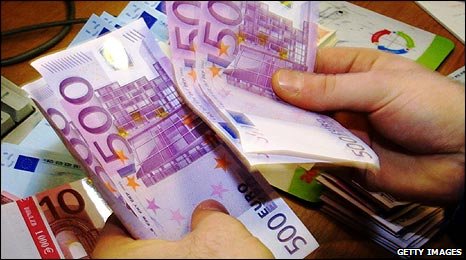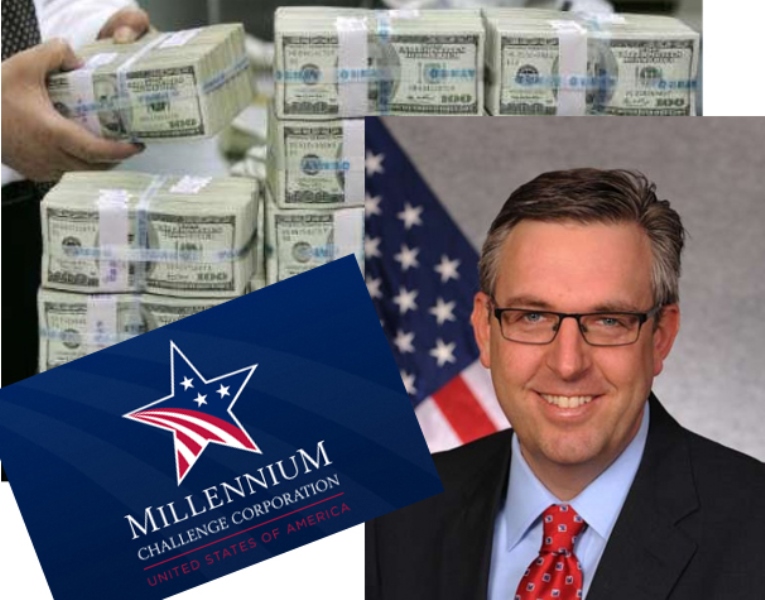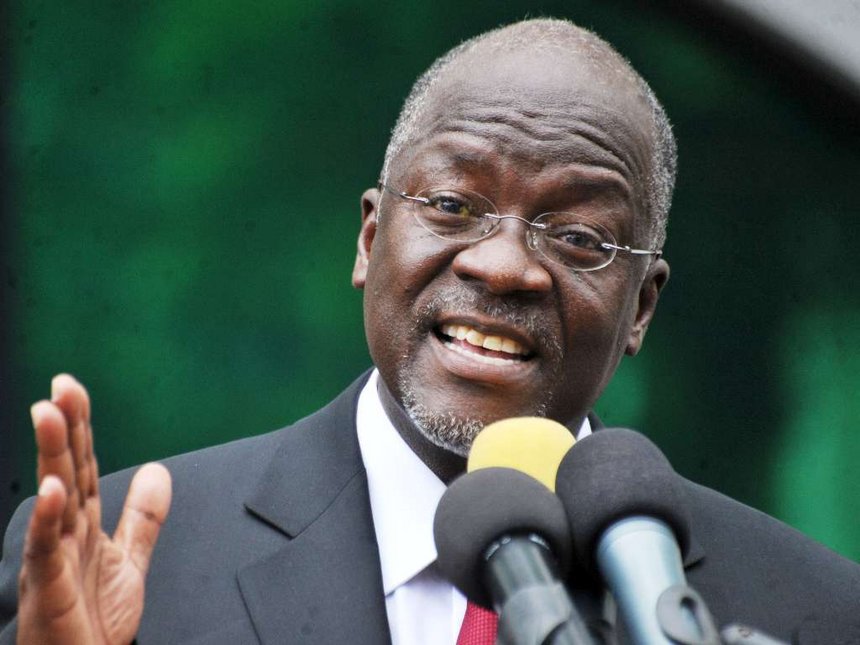There has been no change in status since MCC’s Board of Director’s statement in March [2016] announcing the decision to suspend the partnership with Tanzania, US Embassy tells TZ Business News….as Disbursements From Other Development Partners Continue.
By TZ Business News Staff.
In gestures of growing confidence in the current Tanzania Government, a number of development partners are pouring money into Tanzania to help transform the East African country into an industrial state within ten years; but the United States of American, a major development partner, is keeping away to protest against corruption and alleged absence of ‘inclusive democracy’ in the country.
In the persisting US Government view, Tanzania government is still corrupt and lacks the required level of democratic ‘inclusivity’ to deserve the suspended $472 million US assistance previously set aside for assistance in rural electrification of the country.
The funds had previously been set aside for Tanzania under the US Government’s Millennium Challenge Corporation (MCC) window. The aid had been planned for use during the current Tanzania administration, but the MCC abandoned this plan in 2016 to protest alleged corruption in the Tanzania Government and the post-election political squabbles in Zanzibar.
Marissa Maurer, the U.S. Embassy Spokesperson in Dar es Salaam told this website in response to a question on the suspended aid, “there has been no change in status since MCC’s Board of Director’s statement in March [2016] announcing the decision to suspend the partnership with Tanzania.”
The US stand remains in force against a backdrop in which the current Tanzania Government is seen to command remarkable confidence and respect from other development partners, according to Benny Mwaipaja, the Acting Spokesman for the Tanzania Ministry of Finance and Planning.
“Effective economic management steps being taken by the [current Tanzania] Government under the leadership of Dr. John Pombe Magufuli have induced confidence and attracted many development partners,” Mwaipaja said. “The President’s stand against corruption and misuse of public funds, as well as his struggle to maintain discipline in public service is among issues which have added management value to Tanzania.”
The European Union (EU) has this April, 2017 pledged 1.2bn euros to assist Tanzania in its effort toward an industrial economy–particulary in the areas of agriculture and power generation. 
The EU Ambassador to Tanzania, Mr. Roeland Van de Geerna, has said the EU support to Tanzania would include Tsh. 500bn/- to be issued for development projects in the coming four years– which the Tanzania President has described as proof of good bilateral relations between the two development partners.
“I am happy that our bilateral relations are pegged on key areas for Tanzanians; I assure you that [your] financial support will be well spent and bring out the expected results,” the President told ambassador Van de Geerna during their meeting.
A statement from the President’s office released to the media said the EU Ambassador praised President Magufuli’s leadership in addressing issues of good governance and his economic development initiative.
The Israeli Ambassador to Tanzania, Mr Yahel Vilan, has also held talks with the Tanzania President and expressed his country’s commitment to the extension of bilateral relations between the two countries in avenues of investment, trade, tourism promotion and social services improvement. The ambassador is based in Nairobi, Kenya.
The Israeli ambassador pledged construction of an Intensive Care Unit (ICU) at Benjamin Mkapa Hospital in Dodoma by the end of this year.
To make this relationship work, the press statement from the President’s office said, President Magufuli told the Ambassador Tanzania had decided to open an embassy in Israel and asked the ambassador to pass over a message to the Israeli Premier, Mr Benjamin Netanyahu, on the need to see into possibilities of opening their embassy in Tanzania too.
Prior to the suspension of the MCC assistance in March 2016, Tanzania had been a longtime partner of the US Government’s MCC funding–signing in February 2008 what was at the time the largest country assistance in the corporation’s history— nearly $700 million aimed at increasing access to electricity.
The new $472 million MCC compact which had been under consideration was expected to support President Magufuli’s plan to increase rural electrification in a country which has consistently suffered from power shortages and seen economic growth suffer as a result.
Suspension of the MCC funds in 2016 was related to political squabbles in Zanzibar after the late 2015 general elections, where the Government was thought to have denied the opposition parties ‘inclusivity’.
A statement issued by the MCC on March 20, 2016 said “ Tanzania moved forward with a new election in Zanzibar that was neither inclusive nor representative, despite the repeated concerns of the U.S. Government and the international community. The Government of Tanzania has also not taken measures to ensure freedom of expression and association are respected in the implementation of the Cybercrimes Act.”
The statement added: “MCC’s model has a partner country’s commitment to democracy and free and fair elections at its core. The elections in Zanzibar and application of the Cybercrimes Act run counter to this commitment.
“As a result, while the United States and Tanzania continue to share many priorities, the MCC Board of Directors determined that the Government of Tanzania has engaged in a pattern of actions inconsistent with MCC’s eligibility criteria, and voted to suspend the agency’s partnership with the Government of Tanzania. MCC will therefore cease all activities related to the development of a second compact with Tanzania,” the MCC statement said.
The Ministry of Finance and Planning spokesman does not see corruption or ‘lack of inclusivity’ in the current Tanzania government under President Magufuli. He instead says under this leadership, “people should only expect good things such as construction of infrastructure meant to open economic opportunities, investment in electricity production, railways and waterways transportation, and investments in social services such as water, health and education.”
Tanzania has in the meantime signed two concessional loan agreements for 164 million US dollars (352.6bn/-) with the African Development Bank (AfDB) as General Budget Support (GBS) for the year 2016/17. The loans will be used on power generation as well as capital to boost the Tanzania Agricultural Development Bank (TADB).
And speaking before departing Dar es Salaam for a new assignment in South Africa, the former AfDB Country Representative, Dr Tonia Kandiero, said AfDB was planning to upscale financial leveraging into the Tanzania economy.
Tanzania and the World bank have also recently signed agreements for loans totaling $780 million (about 1.716trl/-) to fund infrastructure development which include a flyover at Ubungo crossroads in Dar es Salaam.
Speaking during a visit in Dar es Salaam in March, 2017, the World Bank President Dr Jim Yong Kim praised President Magufuli for his on-going purge on corruption and his vision of development towards the Tanzania Vision 2025 which seek to transform the country into a middle-income economy.





